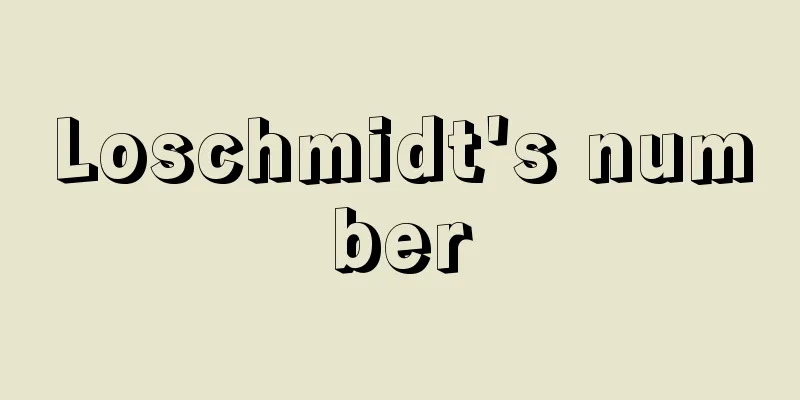Stock - Turnip

[1] 〘 noun 〙① The base of a plant. (i) The trunk or root that remains after a tree is cut down. Kirikabu. Kuize. ※Gyokujinsho (1563) 10 “The culms of grass fungus grow on the turnips of dead and decaying trees.” (b) The base of a plant that has many roots. A clump of grass. ※Goyudono Jounal - Bunmei 18 (1486) January 8 (first page) “From our Chion-in, many people come.”② A position or status held in relation to others. (i) In the early modern period, the status, status, status, and business that were inherited and continued by members of a certain group of government-approved traders, vassals, village heads, and landlords. The number of such rights was limited and they became the subject of sale and transfer. *Haiku, Saikaku Oyasuzu (1681), vol. 11: "Sometimes I hear at the temple of Hatsuse that a person buys a sake talisman under the cover of his name . " (Ro) Broadly refers to a privilege, status, qualification, or position in a profession or business. *Haiku, Saikaku Oyasuzu (1681), vol. 2: "After two years of hard work, a boat was made, and the business changed to a large sake talisman." (Ha) Generally, status. Family background. Clan. *Ninjyohon, Seidan Wakamidori (mid-19th century), vol. 2: "The master is also a well-known stockholder in this area." ③ A person's natural behavior or state. A peculiar habit. A unique point. A good point. Bring it on. Okabu. O-kabu. *Miscellaneous haiku, Senryu Hyō Manku-Awa, Horeki 11 (1761), Yoshizo: "The wife of Naka-juku wears a poisonous head covering." ④ An abbreviation of "kabushiki (stock)" and "kabuken (stock certificate)." Also, the buying and selling of these. ※Kaishaben (1871)〈Fukuchi Sakurachi〉Outline of procedures for setting up various companies "The amount of the assets should be divided according to the size of the company, and one share should be determined to be hundreds or thousands of ryo. These are called company shares." [2] [Suffix] ① Used to count plants with roots. [Nippo Jisho (1603-04)] ※Haiku, Zoku Sarumin (1698), Spring "A single peony turnip is like a cold young leaf〈Otoh〉" ② Used to count fungi, bacteria, cultured cells, etc. ③ Used to count stock certificates. "Today's turnover is 90 million shares." ④ (Placed after a noun) Expresses a person of that status or qualification. ※Kibyoushi, Kaneka Sensei Eikamu (1775), "He went to Edo no matter what and made himself a storekeeper."Shu [Stock]Source: The Selected Edition of the Japanese Language Dictionary About the Selected Edition of the Japanese Language Dictionary Information |
[1] 〘名〙① 植物の根もと。(イ) 木を切った後に残った幹または根。きりかぶ。くいぜ。※玉塵抄(1563)一〇「枯れ朽た木のかぶに芝菌のくさびらがはゆるぞ」(ロ) 植物の何本にもなった根もと。株立ち。※御湯殿上日記‐文明一八年(1486)正月八日(頭書)「うちのちおん院より、なんてんのかふともあまたまいる」② 他に対して占める地位、身分。(イ) 近世、官許された特定の業者仲間の組合員や御家人、名主、家主などが世襲、継続した地位、身分、格式、業務。その数が限定されて権利となり、売買・譲渡の対象となった。※俳諧・西鶴大矢数(1681)第一一「或はかね初瀬の寺に聞ゆなる 酒の家符(カフ)買の下陰」(ロ) 広く職業・営業上での特権、地位、資格、役職をいう。※俳諧・西鶴大矢数(1681)第二「二年懸工みて舟を作られたり 商売替て酒の大家符」(ハ) 一般に、身分。家柄。一族。※人情本・清談若緑(19C中)二「旦那もまたこの土地では、名も知られた株(カブ)で居ながら」③ その人の持ち前となっている動作、状態。特有のくせ。独特の点。得意な点。持ちまえ。おかぶ。お得意。※雑俳・川柳評万句合‐宝暦一一(1761)義三「中宿の女房は毒をかぶにして」④ 「かぶしき(株式)」「かぶけん(株券)」の略。また、その売買。※会社弁(1871)〈福地桜痴〉諸会社取建の手続大要「会の大小に応じ財本の高を割り、何百両又は何千両を以て一株と定むべし。之を会社の株と唱ふ」[2] 〘接尾〙① 根のついた植物を数えるのに用いる。〔日葡辞書(1603‐04)〕※俳諧・続猿蓑(1698)春「一かぶの牡丹は寒き若菜かな〈尾頭〉」② 菌、バクテリア、培養細胞等を数えるのに用いる。③ 株券を数えるのに用いる。「本日の出来高九千万株」④ (名詞の下につけて) そういう身分、資格を持つ者の意を表わす。※黄表紙・金々先生栄花夢(1775)「なんでも江戸へ出で、番頭かぶとこぎつけ」
しゅ【株】出典 精選版 日本国語大辞典精選版 日本国語大辞典について 情報 |
Recommend
Shell - Head
…Zheng Chenggong was his son. In Japan, he was ca...
Thomas Hodgskin
He was a Ricardian socialist. At the age of 12, h...
Samita Takarazuka Tomb - Samita Takarazuka Tomb
<br /> This ancient tomb is located in Samid...
Kokudaka system
An economic and political system based on the off...
Character drama
〘 noun 〙 A play that emphasizes the character and ...
Algal Mat - Algal Mat
...A sedimentary structure consisting of laminae ...
Argo - Argo
A huge constellation seen low on the southern hor...
Hydroides ezoensis (English spelling) Hydroides ezoensis
… [Minoru Imajima]. … *Some of the terminology th...
Friedrich Eberhard von Rochow
German educator (1734-1805). Properly pronounced &...
Higashisonogi [town] - Higashisonogi
A town facing Omura Bay in Higashisonogi County, N...
Natural increase - Shizenzoshuu
When compiling a budget, the government estimates ...
Nielsen, A. (English spelling) NielsenA
…Just as Italy created the screen diva and became...
Lem, Stanisław
Born: September 12, 1921, Rufu [Died] March 27, 20...
Complete compensation theory
…The Japanese Constitution also provides that pri...
Mother-in-law plant
…The genus Dieffenbachia (Dieffenbachia) of the A...









